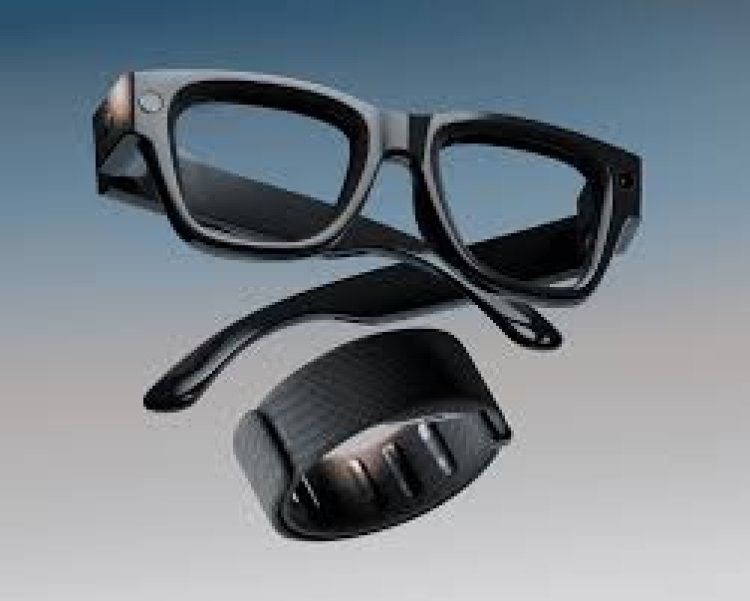Meta Unveils Ray-Ban Display Smart Glasses, Aiming at AI-Driven ‘Superintelligence’

Meta Launches Smart Glasses With Built-In Display, Reaching for ‘Superintelligence’
Meta Platforms has taken a bold step into the future of wearable technology by launching its first consumer-ready smart glasses with a built-in display. The announcement came during Meta’s annual Connect developer conference, held at the company’s Menlo Park headquarters. Called the Meta Ray-Ban Display, the glasses mark a significant upgrade to the existing Ray-Ban smart glasses line, which had already gained traction among consumers in the growing AI era. The new model is priced starting at $799 and will be available in stores from September 30.
Meta CEO Mark Zuckerberg introduced the glasses with ambitious language, calling them the “ideal form factor for personal superintelligence.” He emphasized how the glasses allow users to stay present while tapping into advanced AI capabilities such as enhancing memory, improving communication, and boosting real-time awareness. The new Ray-Ban Display features a small digital screen in the right lens for displaying notifications and basic information. Although some live demos at the event faced technical issues, including a failed call attempt, Zuckerberg remained unfazed, receiving applause for his candor.
In addition to the Ray-Ban Display, Meta also launched a new pair of Oakley-branded glasses called Vanguard, aimed at athletes and fitness enthusiasts. Priced at $499, Vanguard integrates with platforms like Garmin and Strava, offering real-time performance stats and post-workout summaries, with a battery life of up to nine hours. Meta also unveiled an updated version of its original Ray-Ban smart glasses now retailing at $379 which boasts nearly double the battery life and a significantly improved camera.
Despite skepticism about immediate sales performance, industry analysts view the launch of the Display glasses as a strategic step toward Meta’s long-term vision. The company is reportedly working on a more advanced version, codenamed Orion, expected in 2027. This device, described by Zuckerberg as a “time machine to the future,” is anticipated to fully blend AR, AI, and smart technology into a seamless user experience.
Meta’s aggressive move in the wearable AI space comes as it continues to invest heavily in artificial intelligence, including recruiting top engineers and pouring billions into chip development. However, the company also faces criticism over its handling of online safety. Reports of AI chatbots engaging minors in inappropriate conversations and concerns about the mental health impact of virtual reality on children have raised questions about Meta’s priorities.
Even so, Meta remains at the forefront of wearable tech innovation. As consumer interest in AI-integrated glasses continues to grow, the success of products like the Ray-Ban Display may shape not just the future of smart eyewear but the evolution of personal computing itself.























